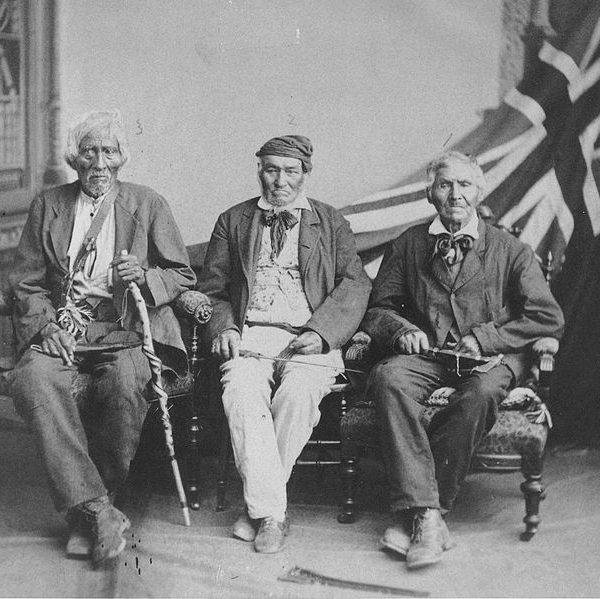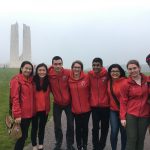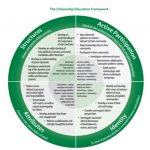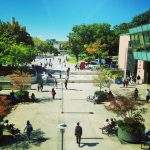
Grade 7 History UNIT 2, 1800-1850: CONFLICT AND CHANGE
Lesson 1 by Philip Lloyd
LESSON TITLE: The War of 1812 and the Contribution of Aboriginal Peoples
TIME: 80 minutes (2 class periods)
EXPECTATIONS: Overall
- The students will gain an understanding of the significance of the War of 1812 as examined through different historical perspectives (British, Canadian, America, Aboriginal)
- The students will learn how to express historical significance and meaning in an artistic form (poems)
- The students will begin to understand how the lack of acknowledgement for Aboriginal perspectives in our history has contributed to strained relations with Aboriginal peoples today
- The students will practice how to work collaboratively with their peers and decipher which pieces of historical information are the most significant
Specific Curriculum Expectations
Content
B3.1 Identify factors leading to some key events and/or trends that occurred in and/or affected Canada between 1800-1850
Historical Thinking
B2.5 Evaluate evidence and draw conclusions about perspectives of different groups on significant events, developments, or issues that affected Canada and/or Canadians
“Non-Academic Outcome” – related to Habit of Mind #8: Transference Beyond the Learning Situation
B2.6 Communicate the results of their inquires using appropriate vocabulary and formats appropriate for various audiences
ASSESSMENT:
Formative Assessments
- The research each student brought to the first lesson
- The poem that each group presents to the class
Summative Assessments
- The 300-word reflection
- The recreated poem
PLANNING NOTES:
Remember, the purpose of this lesson is to NOT to have students have a comprehensive understanding of the War of 1812. Rather, the main objective is to show students the importance of different historical perspectives can dictate how we remember history. It is to show the necessity of meaningful integration of each perspective into the historical narrative.
PRIOR KNOWLEDGE REQUIRED (of STUDENTS):
In previous lessons, students will have already begun to look at historical events through multiple perspectives. They will have learned about previous interactions between Aboriginal peoples and European settlers. They will also have analyzed the contributions of Aboriginal peoples within the Seven Years War.
Before coming to class, the students will be expected to have reviewed websites that provide a background to the War of 1812 (#1, #2, and #3 as shown in “Resources”). The class will have been divided into three (approximately 3 groups of 9).
Group A will come to class having answered:
- Name two significant causes of the War of 1812.
Group B will come to class having answered:
- Name two significant battles and/or moments of the War of 1812 and why they are significant.
Group C will have come to class having answered:
- Name two significant consequences of the War of 1812.
ACCOMODATIONS/ MODIFICATIONS:
- Have both computers and hard copies of the resources students will be expected to read.
- Provide students with a worksheet to follow along when I am speaking.
- Walk around the room as I am speaking.
- Have a mix of independent and group work.
- Ensure the groupings are purposeful.
- Do not require a student to present their poem to the class if they are extremely uncomfortable.
RESOURCES:
Background to the War of 1812
- http://www.thecanadianencyclopedia.ca/en/article/war-of-1812/
- http://education.historicacanada.ca/en/tools/34
Aboriginal Contributions to the War of 1812
- https://www.aadnc-aandc.gc.ca/eng/1348771334472/1348771382418
- http://www.warmuseum.ca/war-of-1812/explore-history/
TEACHING / LEARNING TASKS AND DURATION (APPROX):
Minds-On (10 minutes)
Each student will share one of the two (1) causes, (2) battles, or (3) consequences they identified for homework. Two squares and one horizontal line will be drawn on the board. One square will be labeled “Causes” and other “Consequences.” The line in the middle will be labeled “Timeline” which is where students in Group B can include their information on the battles.
Introduction (15 minutes)
The teacher will provide a very brief overview of the War of 1812, citing the research the students have completed. The teacher will provide greater depth on particular points and correct any misunderstandings, where applicable. The teacher will NOT discuss the contribution of Aboriginal peoples unless a student has written something to that effect in the board. In that case, the teacher will just mention it and not go into detail. As the teacher is speaking, the students will complete a worksheet with space to record answers to the three initial questions (see Appendix A).
Activity #1 (15 minutes)
Students will gather in groups, where there is one representative from group A, B, and C. Students will begin writing a short “ballad” poem (with an AC-AC-AC rhyming pattern) using the information they and their classmates have collected. Students are to write a poem from the perspective of a solider (any solider). They are to assume this poem will be read 200 years later and within it, they want to outline what they hope future generation will remember about the war. The teacherI will provide a Robert Frost poem as an example.
Fire and Ice
Some say the world will end in fire,
Some say in ice.
From what I’ve tasted of desire
I hold with those who favour fire.
But if it had to perish twice,
I think I know enough of hate
To say that for destruction ice
Is also great
And would suffice.
– Robert Frost
The students will be expected to work with their groups and complete their poems by the following class.
Activity #2 (10 minutes)
Each group will share their poem with the rest of the class. This will be evidence of “visible learning.” The teacher will make note of whether they included any information surrounding the Aboriginal experience and/or significance to the war.
Activity #3 (15 minutes)
The students will be given the opportunity to review the websites (either online or a hard copy) that outline the Aboriginal contribution to the War of 1812 (#4, #5, and #6 as shown in “Resources”).
Consolidation (15 minutes)
The teacher will bring the class together and discuss the following questions:
- Why do you think there are differences in the way the European/Canadian/American participation in the war is remembered as compared to the Aboriginal participation?
- For those of you that didn’t include anything related to Aboriginal peoples in your poem, why do you think that is? Was that intentional? Did the resources you look at contain information on this topic?
- Why is it important to remember the contributions of Aboriginal peoples in the War of 1812 and in the development of Canada more generally?
HOMEWORK:
The students will be asked to do two things for homework.
- The mission of the “Idle No More” campaign is as follows: “Idle No More calls on all people to join in a peaceful revolution, to honour Indigenous sovereignty, and to protect the land and water.” Continue your reading/research on the websites provided in class. In addition, check out: http://www.idlenomore.ca/vision. In 300 words, write how you think the lack of acknowledgement for Aboriginal perspectives in our understanding of history has contributed to strained relations with Aboriginal peoples today?
- Individually, re-write the poem you created to reflect the new knowledge you’ve gained on the significance of the Aboriginal peoples in the War of 1812.
The next lesson is entitled: “Immigration: Growth and Displacement of Settlement in Upper & Lower Canada and How It Affected Indigenous Populations.” Given the consequences that war had on Aboriginal people’s land, the lesson showcased above will be an effective precursor.
Appendix A
Name: _______________________________ Date: __________________________
THE WAR OF 1812
| Significant Causes1.2.3.4. |


